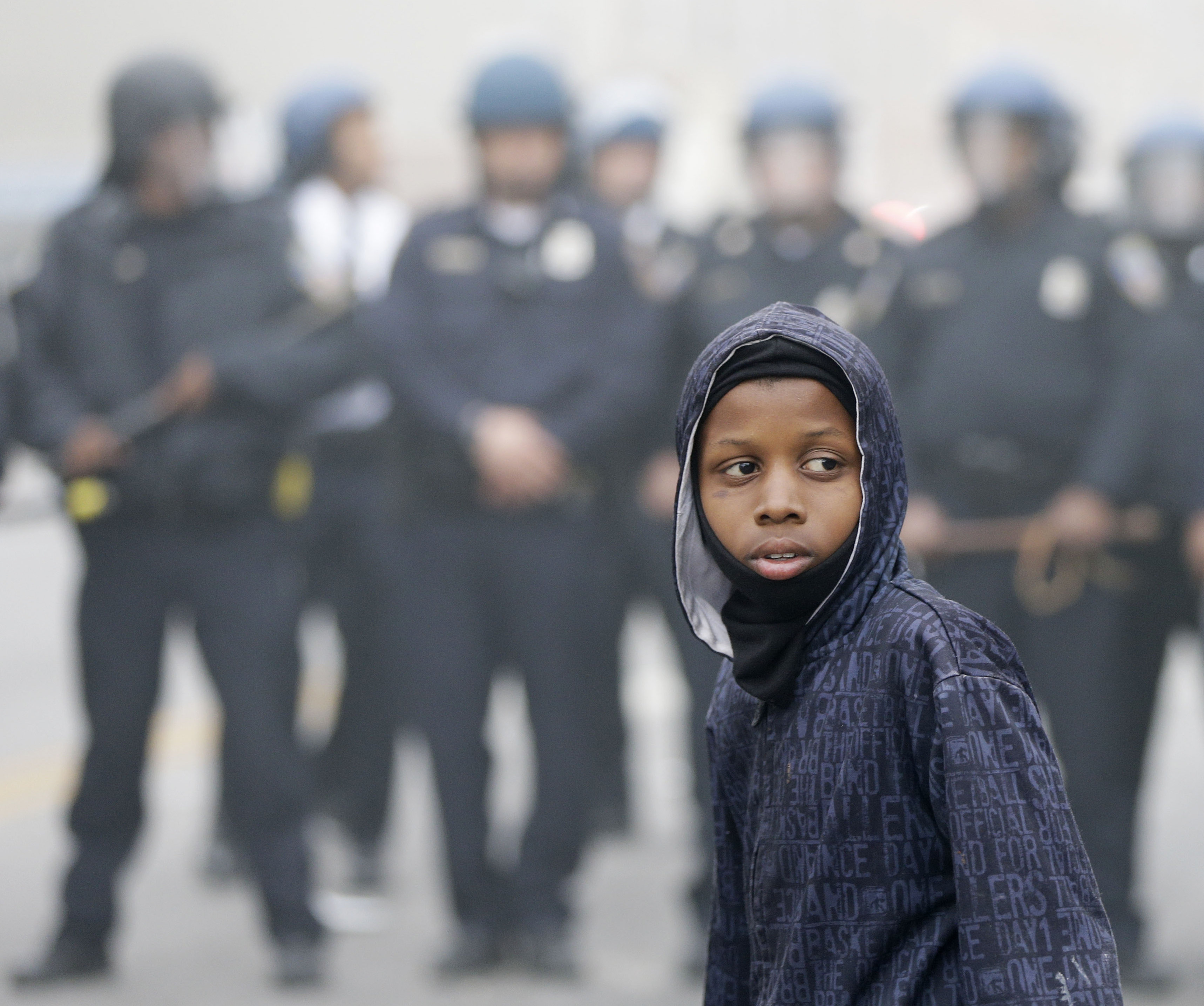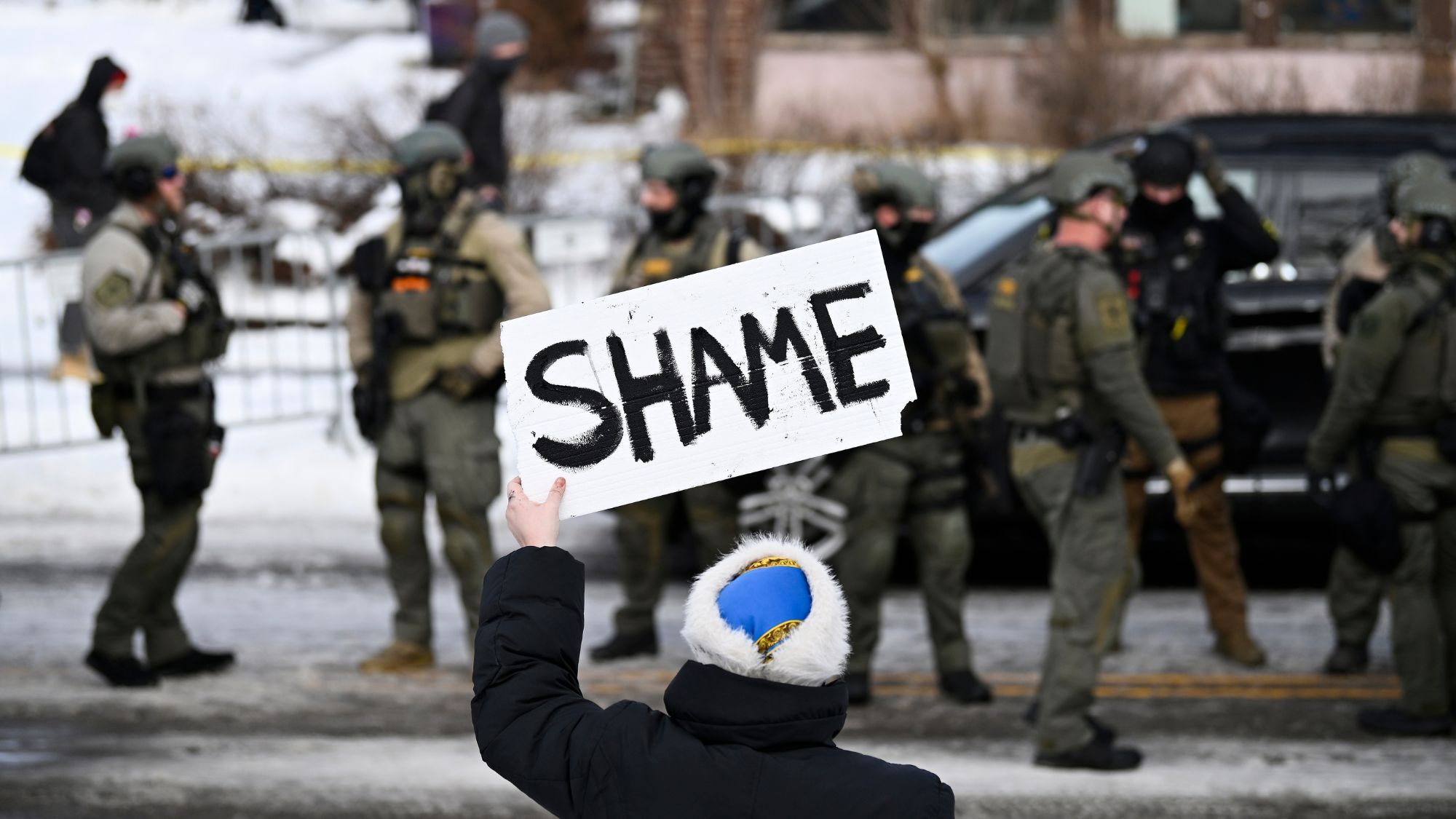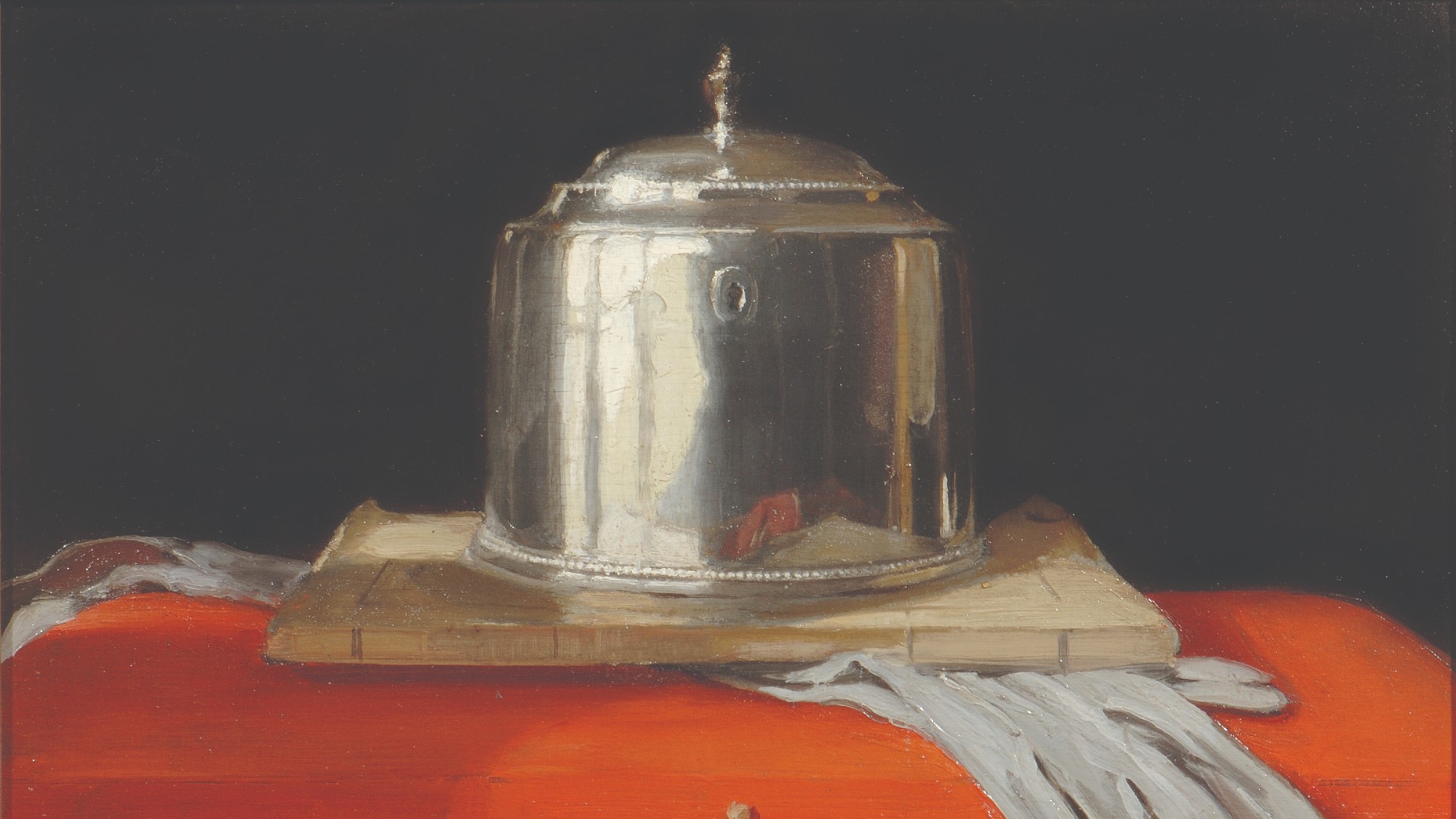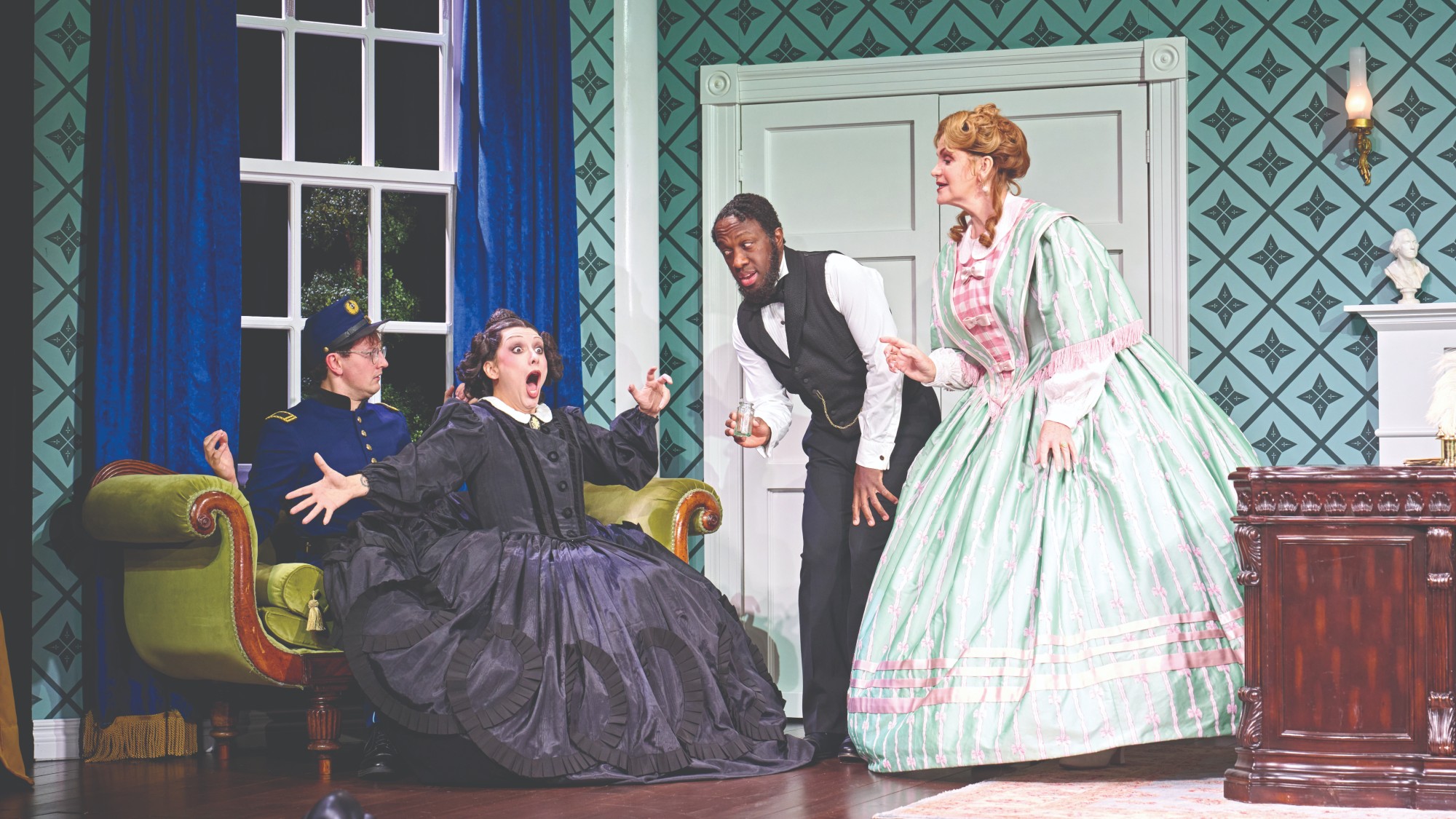The rush to judgment in Baltimore
It’s easy to decry the actions of the rioters or the authorities. It's harder to put yourselves in their shoes.


Unlike Stephanie Rawlings-Blake, I am not a lifelong resident of Baltimore.
I know the city barely at all: from friends, from The Wire, from occasional visits up the parkway to Camden Yards and the Inner Harbor, from glimpses through the curtained windows of an Acela train as it chugs north to Philadelphia.
That's why, as mayor of Baltimore, Rawlings-Blake gets to call the people who assaulted police officers, the instigators of Monday's violence, "thugs," and I don't.
The Week
Escape your echo chamber. Get the facts behind the news, plus analysis from multiple perspectives.

Sign up for The Week's Free Newsletters
From our morning news briefing to a weekly Good News Newsletter, get the best of The Week delivered directly to your inbox.
From our morning news briefing to a weekly Good News Newsletter, get the best of The Week delivered directly to your inbox.
Really, most of the people who get paid to talk on television should be careful about making that judgment, too.
Not because we shouldn't be able to see something wrong and say it's wrong, but because those of us who aren't there — those of us who didn't grow up poor, or simply, black in Baltimore — offer nothing constructive when all we do is make the easy call, when we bemoan violence and decry rioting. We wield no power, and speak no truth. We just contribute stigma. We rehearse the lines that make us feel better about ourselves.
It's harder to put yourselves in the sneakers of the young men who were out on the streets last night — so let's do that. Let's imagine, for a moment, that instead of sitting comfortably, you're standing outside, on a relatively cool night, the acrid stench of smoke in the air. If everyone around me was exhorting me to protest, if they were reminding me of what I saw on television, of a young man my age, whose neck had just been cracked, whose leg dragged against the ground, because his brain could not coordinate with his quadriceps, because the connection had been severed, by a police maneuver gone horribly wrong — what would I do?
The perpetrators of that bit of violence stand before me, in a sea of metallic blue, ready to shoot if I move in their direction. I know that individually, a lot of these police officers are all right, and I know that some of them even live here, in the city of Baltimore, and not outside the Beltway in a better neighborhood. So the police to me are the army of the state, their violence I see on a regular basis, violence I think is arbitrarily applied to people who look like me. There's supposed to be a social compact, where the police and the courts get to mete out justice and we follow their instructions. It's supposed to keep us safe. But when the justice is applied unequally, I don't care how it looks to people outside of my neighborhood; I just know how it feels to me. I don't think I'd be moved to violence, but I know I'd be really, really, really angry, and I sure as hell wouldn't trust authorities, officials, the media, or anyone else who tries to tell me how to feel or what to think.
A free daily email with the biggest news stories of the day – and the best features from TheWeek.com
There's another set of people, a much larger set of people, who deserve genuine empathy: the large majority of Baltimore residents who experience urban poverty, fear the police, and who have never been violent. Not Monday night, not ever. Their grocery stores and laundries are being set in flames, and whatever progress has been made in their neighborhoods over the past decade has been blown apart. If I was supposed to get groceries for my family today, and the corner store that sells me fruit was torched last night, what the hell am I supposed to do?
I was thinking about these people when a commentator on CNN sneered about the mayor's "narrative of control."
Rawlings-Blake was talking about calling in the National Guard to protect these folks. The commentator, whose name I didn't get, was applying a fashionable gloss. He couldn't outright say it but he implied that truly, Baltimore residents would be better served by allowing for total unmediated ventilation of anger, by anarchy, rather than the state. He linked the violence Monday to protest movements around the world. This commentator, some academic somewhere, needs an empathy boost too.
Baltimorean anger against the police is deep and complex, but I'm just as certain that most of the victims of the violence know that they, and not the police, not the power structure, will be the biggest victim, period, of the violence. I don't think that most Baltimoreans identify with the people who are creating more chaos in their neighborhoods.
Ta-Nehisi Coates wrote last night, "When nonviolence is preached by the representatives of the state, while the state doles out heaps of violence to its citizens, it reveals itself to be a con."
Order, I think, is legitimate. But non-violence preaching by the state — the governor, major, the police — is a con when state-sanctioned force is not applied with rigorous fairness, without bias, proportionately, and transparently. The still-unexplained death of Freddie Gray at the hands of the state should give everyone who believes that justice is real, binding, and generative, another reason to look at the world through the eyes of people for whom justice is merely a word.
Marc Ambinder is TheWeek.com's editor-at-large. He is the author, with D.B. Grady, of The Command and Deep State: Inside the Government Secrecy Industry. Marc is also a contributing editor for The Atlantic and GQ. Formerly, he served as White House correspondent for National Journal, chief political consultant for CBS News, and politics editor at The Atlantic. Marc is a 2001 graduate of Harvard. He is married to Michael Park, a corporate strategy consultant, and lives in Los Angeles.
-
 ICE kills woman during Minneapolis protest
ICE kills woman during Minneapolis protestSpeed Read The 37-year-old woman appeared to be driving away when she was shot
-
 William Nicholson: a ‘rich and varied’ exhibition
William Nicholson: a ‘rich and varied’ exhibitionThe Week Recommends The wide-ranging show brings together portraits, illustrations, prints and posters, alongside ‘ravishing’ still lifes
-
 Oh, Mary! – an ‘irreverent, counter-historical’ delight
Oh, Mary! – an ‘irreverent, counter-historical’ delightThe Week Recommends Mason Alexander Park ‘gives the funniest performance in town’ as former First Lady Mary Todd Lincoln
-
 'Once the best in the Middle East,' Beirut hospital pleads for fuel as it faces shutdown
'Once the best in the Middle East,' Beirut hospital pleads for fuel as it faces shutdownSpeed Read
-
 Israeli airstrikes kill senior Hamas figures
Israeli airstrikes kill senior Hamas figuresSpeed Read
-
 An anti-vax conspiracy theory is apparently making anti-maskers consider masking up, social distancing
An anti-vax conspiracy theory is apparently making anti-maskers consider masking up, social distancingSpeed Read
-
 Fighting between Israel and Hamas intensifies, with dozens dead
Fighting between Israel and Hamas intensifies, with dozens deadSpeed Read
-
 United States shares 'serious concerns' with Israel over planned evictions
United States shares 'serious concerns' with Israel over planned evictionsSpeed Read
-
 Police raid in Rio de Janeiro favela leaves at least 25 dead
Police raid in Rio de Janeiro favela leaves at least 25 deadSpeed Read
-
 Derek Chauvin's attorney files motion for new trial
Derek Chauvin's attorney files motion for new trialSpeed Read
-
 At least 20 dead after Mexico City commuter train splits in overpass collapse
At least 20 dead after Mexico City commuter train splits in overpass collapseSpeed Read
